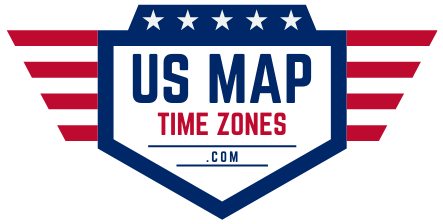Online Industrial Organizational Psychology Degree Programs
Industrial-organizational psychology degrees are available online at the associate, bachelor’s, master’s, and doctoral levels.
An organizational psychologist is what?
Industrial-organizational psychologists apply their knowledge of human behavior to boost a business’s productivity. Systems for hiring, training and assessing personnel are developed in many businesses. To improve staff morale and retention, they also create initiatives and policies.
Others may focus on a specific area, such as assisting with downsizing because of financial restrictions or preparing for corporate mergers. Industrial-organizational psychologists need to be adept at observation, analysis, and program design regardless of the subject matter of their work.
Industrial-organizational psychologists frequently serve as independent consultants for private businesses, helping them with a variety of organizational challenges.
These professionals might also be able to land full-time jobs in bigger companies with human resources divisions. Industrial-organizational psychologists can work for businesses, charitable organizations, or governmental organizations since they have abilities that are applicable across many different industries.
Industrial and organizational psychologist employment is predicted by the Bureau of Labor Statistics to increase by 14% from 2018 to 2028. When applying for available positions, candidates who have a master’s degree in industrial-organizational psychology and experience with quantitative research methodologies are at an advantage.
Frequently Asked Questions About Industrial-Organizational Psychology
What does a psychologist for industrial and organizational behavior do?
Industrial-organizational psychologists assist with study design, interviews, assessment tasks, and survey work for firms. They collaborate in small teams to enhance testing procedures, selection procedures, policies, and other human-resource-related concerns. To make their organizations more effective, they constantly analyze their research.
The importance of industrial-organizational psychology
Industrial-organizational psychologists provide crucial research and analysis to identify fresh approaches to resolving workplace conflicts. These psychologists analyze training and development needs, set criteria to evaluate individual and organizational performance, and administer training programs to increase efficiency.
How much do industrial-organizational psychologists make a year?
Industrial-organizational psychologists make a median compensation of $74,428. Salaries vary depending on geography, educational background, and experience level. For instance, entry-level industrial-organizational psychologists earned an average compensation of around $64,000, while those late in their careers took home an average pay of about $95,000.
How can I become an industrial-organizational psychologist?
To become an industrial-organizational psychologist, persons must begin by acquiring a bachelor’s degree in psychology, which normally takes around four years to accomplish. Once they achieve a bachelor’s degree, each learner must pursue a master’s degree, followed by a doctoral degree.
Do you need a Ph.D. to become an industrial-organizational psychologist?
While some firms give career possibilities to industrial-organizational psychologists who hold master’s degrees, most roles require candidates to hold a Ph.D. degree in psychology, coupled with some previous relevant work experience.
Can You Get a Degree in Industrial-Organizational Psychology Online?
Online programs often share the same material, assignments, instructors, and tests as their on-campus equivalents. Most master’s in industrial-organizational psychology programs do not lead to licensure. As such, they do not need clinical work, thus enrollees can finish them without any in-person components.
Online programs offer more flexibility than campus-based programs, which allows registrants to continue working and mix their studies with family and other personal responsibilities. Students can watch lectures and complete assignments on their schedules.
Online programs offer more flexibility than campus-based programs, which allows registrants to continue working and mix their studies with family and other personal responsibilities.
Some programs allow degree-seekers to progress through the curriculum at their own pace to repeat subjects or skip ahead as needed. Online programs are also suitable for students who have challenges with accessibility, or distance learners who simply prefer the ease of learning at home. While online programs offer numerous benefits, students must exhibit strong desire and time management skills to flourish.
How to Become an Industrial-Organizational Psychologist
To become an industrial-organizational psychologist, each student normally needs a bachelor’s and a master’s degree. Bachelor’s degrees usually take around four years to finish, and master’s programs typically take about two years. Some online programs provide expedited alternatives that allow students to acquire graduate credit while pursuing their bachelor’s degrees.
The cost of undergraduate education varies substantially by the program. Students looking for fairly inexpensive options might examine state schools. In-state tuition is almost usually more reasonable than at private colleges, and sometimes in-state tuition is provided to all online learners regardless of their location.
The cost of a graduate degree also varies, but according to a survey performed by the American Psychological Association, students incurred an average of $60,000 in debt to get a master’s degree in psychology. Online programs can help students save money by avoiding commuting costs and any additional room and board fees.
Average Salary for Psychology Graduates by Degree Level
- Bachelor of Arts, Psychology $60,000
- Master of Arts, Psychology $61,000
- Doctor of Psychology $79,000
Online Bachelor’s in Industrial-Organizational Psychology
Before pursuing higher education and being licensed, each student must receive a bachelor’s degree. A bachelor’s typically requires 120 credits and usually takes approximately four years to finish. Some colleges offer accelerated online programs for enrollees to complete in 3.5 years. Dual-degree programs allow students to begin graduate study while still obtaining their bachelor’s degree, which helps them to save time and money.
Students can pursue a bachelor’s degree in industrial-organizational psychology, however, some aspiring professionals often get bachelor’s degrees in psychology. Both programs provide students with essential knowledge and abilities in areas like personality theory, cognitive psychology, child development, and research methods for the behavioral sciences. Programs with a specialty in industrial-organizational psychology examine organizational behavior and personnel assessment.
Example Courses Introduction to Psychology
This course presents a thorough understanding of the ideas, processes, problems, and applications of psychology. Students study the brain and nervous system, awareness, learning and memory, sensation and perception, and psychopathology.
History and Systems of Psychology
Before digging deeper into a specialism, students need to study the history of psychological practice and theory. In this course, learners debate and critique psychology’s historical foundations, including the people and movements that have shaped the field.
Introduction to Psychological Measurement
Because graduate studies involve a large deal of statistical analysis, bachelor’s programs frequently introduce students to key research principles. This seminar addresses the history and present applications of test creation, standardization, validity, and the reliability of psychological instruments.
Introduction to Career Development
In this course, degree-seekers examine career counseling theories and strategies, with a specific focus on dealing with various client populations. Topics include career counseling, decision-making, investigating career prospects, establishing employable skills, and judging worth and interest.
Organizational Psychology
This seminar prepares participants for master’s-level coursework in industrial-organizational psychology. Students learn how to maximize efficiency in several organizational contexts. The course addresses motivation, morale, ethics, and training.
Online Master’s Degree in Industrial-Organizational Psychology
An industrial-organizational psychologist normally needs a master’s degree in psychology to enter the field. A master’s degree requires students to finish roughly 36 graduate-level coursework. Full-time students can receive their master’s degrees in around two years, whereas part-time learners need three years or more. Some programs follow a cohort style, meaning students study 1-2 classes at a time as part of a group. Other programs are self-paced to give even more flexibility for online learners.
Industrial-organizational psychology master’s degrees feature curricula in personnel psychology, the ethics of the profession, organizational behavior, and leadership. Research-based programs also incorporate lectures in qualitative and quantitative research approaches to prepare learners for thesis or capstone projects.
Example Courses
Psychology of Organizational Behavior
Students investigate the application of behavioral theories in organizational environments. The curriculum covers issues in team building, group growth, employee motivation, job satisfaction, organizational leadership, and organizational culture.
Consulting for Organizational Change
Enrolls examine the essential techniques of change management. Topics include strategic planning and conflict management. Students can use these skills through organizational case studies.
Personnel Psychology in the Workplace
Industrial-organizational psychologists often work closely with human resources specialists. In this session, learners investigate the psychological aspects of work design and analysis, personnel selection and placement, professional development and training, and performance management and evaluation.
Industrial-Organizational Testing and Measurement
This seminar addresses measurement theory and assessments applied in organizational contexts. Topics include reliability and validity, normative sampling and standardization, test score interpretation, and test construction. Students also learn about cultural biases and sociological difficulties as they relate to testing.
Quantitative Reasoning and Analysis
This course helps students improve their knowledge and abilities in data gathering, analysis, and interpretation. Students learn and apply statistical principles, examine the relevance of quality assurance, receive instruction on statistical software, and synthesize their learning by designing a quantitative research plan.
Required Licenses and Internships to Become an Industrial-Organizational Psychologist
Licensure criteria for industrial-organizational psychologists differ. In most states, practicing psychology or using the title “psychologist” needs a license. However, according to the Society of Industrial-Organizational Psychologists, certain jurisdictions specifically exempt industrial-organizational psychologists from this need.
Internships offer an excellent approach for students to obtain practical experience in the subject.
Other states only need industrial-organizational psychologists to get licenses if they undertake particular activities. Prospective students should seek out their state’s licensing board for more information. Contact information for each state board is available through the Association of State and Provincial Psychology Boards.
Bachelor’s and master’s programs in industrial-organizational psychology do not prepare students for licensing. As such, many research-based programs do not require clinical work. However, internships offer an excellent avenue for students to obtain experience in the industry. They can also position graduates for employment chances by strengthening their resumes and professional networks.
Careers for Industrial-Organizational Psychology Degree-Holders
Students who have acquired an online master’s in industrial-organizational psychology might pursue several different careers. Some operate independently, advising diverse companies on a case-by-case basis, while others prefer full-time employment in the for-profit or nonprofit sectors. All careers in this industry require outstanding observational, analytical, communication, and problem-solving skills.
What Does an Industrial-Organizational Psychologist Make in a Year?
Industrial-organizational psychologists earn a median annual income of $74,428. Salary opportunities for these professionals range depending on geography, education, and experience. Psychologists in the 10th percentile took home an annual mean pay of $51,350, while those in the 90th percentile earned an annual mean wage of $192,150.
The scientific research and development services business offers the highest employment levels, the concentration of jobs, and compensation potential for industrial-organizational psychologists. These experts might examine the highest employment levels and concentration of jobs in Virginia and the highest-paying possibilities in California. The following table allows users to compare the industrial-organizational psychologist occupation to similar occupations in the field in terms of salary data.
Position Average Annual Salary
- Management Consultant $87,345
- Industrial-Organizational Psychologist $74,428
- Human Resources Team Leader $57,388
Thanks for visiting US Map Time Zones

